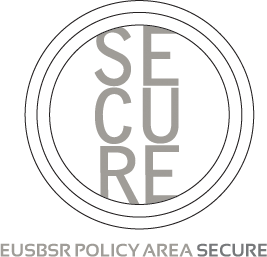 Erasmus of Rotterdam’s famous words, that “prevention is better than cure” resonate the most with the world of Fire and Rescue. It has been proven time and again that prevention can save lives and money: fire alarms in homes is one of the obvious examples of preventive measures that work well. However, considering limited resources of Fire and Rescue Services, which prevention measures are the most effective? And how to measure their effectiveness? The latest addition to the Policy Area (PA) Secure family of flagship initiatives – EVAPREM: Developing an evaluation model to assess prevention measures – takes on the challenge to answer these questions.
Erasmus of Rotterdam’s famous words, that “prevention is better than cure” resonate the most with the world of Fire and Rescue. It has been proven time and again that prevention can save lives and money: fire alarms in homes is one of the obvious examples of preventive measures that work well. However, considering limited resources of Fire and Rescue Services, which prevention measures are the most effective? And how to measure their effectiveness? The latest addition to the Policy Area (PA) Secure family of flagship initiatives – EVAPREM: Developing an evaluation model to assess prevention measures – takes on the challenge to answer these questions.
PA Secure representatives Jacek Paszkowski and Nina Jernberg, from the Council of the Baltic Sea States (CBSS) Secretariat’s Civil Security team, visited EVAPREM’s latest project meeting in Riga, Latvia on 16-17 August 2017. The CBSS team shared their view on how the EU Strategy for the Baltic Sea Region (EUSBSR) can be used as a platform for broader outreach, and how the Policy Area Coordinators in the EUSBSR bring together organisations and networks, facing similar problems, so they can be solved in a cooperative action.
During the meeting, the project partners discussed the assessment model introduced by the University of Tartu, Estonia. The suggested model consists of three parts: I. General statistics about emergencies; II. Population statistics based on surveys, and; III. Impact of prevention activities. The Estonian Rescue Board, Frederiksbourg Fire and Rescue (Denmark), the Fire and Rescue Department under the Ministry of Interior of the Republic of Lithuania, the State Fire and Rescue Service of Latvia, and the University of Turku, Teacher Education, Rauma Unit (Finland) all contributed to the discussion, sharing their competencies and reports from their respective countries, which will help to improve the model. EVAPREM, which will run until the end of 2018, has received funding from the European Commission’s DG ECHO.
Project’s page on the Estonian Rescue Board website

